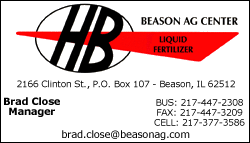| |||||||||||
| |||||||||||
"It's very simple work. They can learn this in a day," said manager Hong Ha-sung. The propaganda on the walls here is about health and safety: "Beware of fires!" "Wash your hands carefully!" There's a ping pong table with balls emblazoned with the word "peace"
-- sometimes the competition is fierce. The interaction between the North and South Koreans is collegial and cordial, but Chun and Hong say socializing is kept to a minimum. The South Koreans dine separately from the North Koreans, eating food brought from the South and stored in their own refrigerator. The question of how North Korean workers are paid is a thorny one, with many believing that the government takes a large cut of the salaries. Hong said he pays the employees directly. The average Kaesong worker makes more than $110 a month, said Pak, the North Korean official. Trainees make less, but an "incentive-based" system allows workers to earn as much as $150 a month, he said. "With overtime, they can earn bonuses," Pak said, speaking to AP in September in a conference room with portraits of Kim Jong Il and North Korean founder Kim Il Sung hanging behind him. Discussion of bonuses and incentives has been associated with directive from leader Kim Jong Un, son of Kim Jong Il and grandson of Kim Il Sung. At clothing maker ShinWon's three gleaming, futuristic buildings, the toilets are South Korean and the sewing machines are Japanese. Even the pantry is stocked with South Korean snacks. Workers are dressed in blue bonnets and in uniforms with "ShinWon" stitched in English on the spot where they'd normally wear a loyalty pin bearing their leaders' portraits. At one cutting table, a South Korean manager confers quietly with two North Korean women about a design. The women nod in agreement. A sign taped up on a wall says "Accuracy" in Korean. ShinWon President Hwang Woo-seung said that although Kaesong's tax regulations and other rules can be complicated, it's worth it to be able to employ North Korean workers. "First of all, we speak the same language," he said in Kaesong in September. "And secondly, they're very skilled with their hands." On Saturday, ShinWon said its 15 South Korean managers were staying in Kaesong. The company has enough raw materials to last through early May but will soon run out of gas, fuel and food if the entry ban continues, a spokesman said Saturday. ___ The complex is about more than money, said Cho Dong-ho, a North Korea expert at Ewha Womans University in Seoul: "It is a string that links the two Koreas." "If it evaporates, there is officially nothing in terms of economic ties between the countries," he said. South Korea's new unification minister, Ryoo Kihl-jae, says new President Park Geun-hye is open to dialogue with North Korea. "We have repeatedly said this, but what we want from the Kaesong industrial complex is stable maintenance and development," he said in Seoul on Friday. Inside Kaesong, managers and workers avoid talking politics. In Seoul, South Korea is called "hanguk" in Korean; in Kaesong, they simply call the country "Choson," the pre-division name for Korea. Similarly, the labels on ShinWon's garments read simply: Made in Korea. "We don't say 'DPRK' or 'North Korea,'" Hwang said. "Southerners won't know if it's made in South Korea or North Korea
-- but the quality is just as high." He said he's looking forward to the day when everything made on the Korean Peninsula can bear that same label. "We're waiting for the day when the country will be reunified," he said. "We're working hard every day."
[Associated
Press;
Copyright 2013 The Associated
Press. All rights reserved. This material may not be published,
broadcast, rewritten or redistributed.

News | Sports | Business | Rural Review | Teaching & Learning | Home and Family | Tourism | Obituaries
Community |
Perspectives
|
Law & Courts |
Leisure Time
|
Spiritual Life |
Health & Fitness |
Teen Scene
Calendar
|
Letters to the Editor